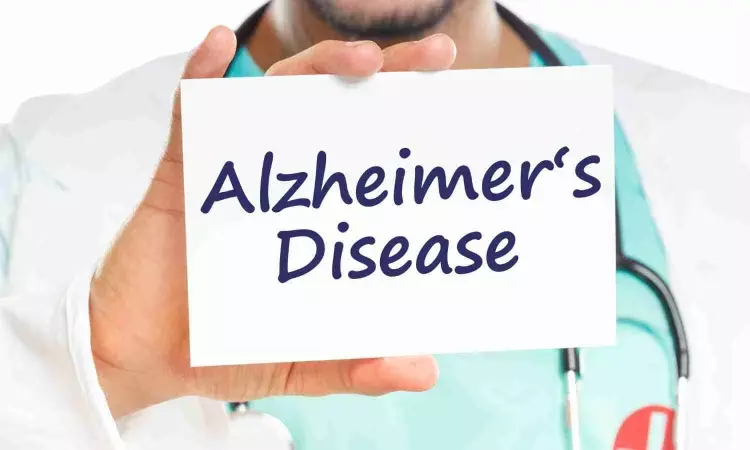- Home
- Medical news & Guidelines
- Anesthesiology
- Cardiology and CTVS
- Critical Care
- Dentistry
- Dermatology
- Diabetes and Endocrinology
- ENT
- Gastroenterology
- Medicine
- Nephrology
- Neurology
- Obstretics-Gynaecology
- Oncology
- Ophthalmology
- Orthopaedics
- Pediatrics-Neonatology
- Psychiatry
- Pulmonology
- Radiology
- Surgery
- Urology
- Laboratory Medicine
- Diet
- Nursing
- Paramedical
- Physiotherapy
- Health news
- Fact Check
- Bone Health Fact Check
- Brain Health Fact Check
- Cancer Related Fact Check
- Child Care Fact Check
- Dental and oral health fact check
- Diabetes and metabolic health fact check
- Diet and Nutrition Fact Check
- Eye and ENT Care Fact Check
- Fitness fact check
- Gut health fact check
- Heart health fact check
- Kidney health fact check
- Medical education fact check
- Men's health fact check
- Respiratory fact check
- Skin and hair care fact check
- Vaccine and Immunization fact check
- Women's health fact check
- AYUSH
- State News
- Andaman and Nicobar Islands
- Andhra Pradesh
- Arunachal Pradesh
- Assam
- Bihar
- Chandigarh
- Chattisgarh
- Dadra and Nagar Haveli
- Daman and Diu
- Delhi
- Goa
- Gujarat
- Haryana
- Himachal Pradesh
- Jammu & Kashmir
- Jharkhand
- Karnataka
- Kerala
- Ladakh
- Lakshadweep
- Madhya Pradesh
- Maharashtra
- Manipur
- Meghalaya
- Mizoram
- Nagaland
- Odisha
- Puducherry
- Punjab
- Rajasthan
- Sikkim
- Tamil Nadu
- Telangana
- Tripura
- Uttar Pradesh
- Uttrakhand
- West Bengal
- Medical Education
- Industry
Study Finds 80 Percent Higher Alzheimer's Risk in Patients with HSV-1 Infection

USA: A recent large-scale study conducted in the United States has reinforced a growing body of evidence linking herpes simplex virus type 1 (HSV-1) to an increased risk of Alzheimer’s disease (AD). The research, published in BMJ Open, was led by Yunhao Liu and colleagues from Gilead Sciences Inc. in Foster City, California, USA, and utilized real-world data to examine this association among older adults.
Using health records from the IQVIA PharMetrics Plus claims database, the researchers performed a retrospective case-control analysis involving 344,628 matched pairs of individuals aged 50 and above. Participants with Alzheimer’s were matched with controls based on several factors, including age, sex, geographic region, year of database entry, and frequency of healthcare visits.
The study led to the following findings:
- Individuals with a documented HSV-1 infection had an 80% higher likelihood of developing Alzheimer’s disease compared to those without the infection.
- The adjusted odds ratio (aOR) for the association between HSV-1 and Alzheimer’s disease was 1.80.
- The findings suggest a strong link between symptomatic HSV-1 infection and the onset of Alzheimer’s disease.
- Among individuals with HSV-1, those who received antiherpetic treatment had a 17% lower risk of developing Alzheimer’s disease.
- The adjusted hazard ratio (aHR) for the group receiving antiviral therapy was 0.83.
- These results indicate that antiviral treatment may offer a protective effect against the neurodegenerative impact of HSV-1.
“These results highlight a possible role of HSV-1 in Alzheimer’s disease development and suggest that antiherpetic medications might provide a modest protective benefit,” the authors noted. They further emphasized that these findings align with prior observational studies that have pointed to a similar association.
The study has several strengths, including the use of a large, nationally representative dataset and a rigorous matching process to control for confounding factors. However, the researchers acknowledged certain limitations, such as the difficulty in identifying asymptomatic HSV-1 infections through claims data. Since many individuals may carry the virus without showing clinical symptoms, the actual prevalence of HSV-1 could be underrepresented in the dataset.
Despite these limitations, the findings contribute to a growing discourse on the possible infectious contributors to neurodegenerative diseases. The authors suggest that preventing or managing herpesvirus infections, particularly HSV-1, could become an important public health strategy in the fight against Alzheimer’s.
They also call for further investigation to explore whether long-term suppression of neurotropic viruses could influence the course of Alzheimer’s and related dementias. This line of research may pave the way for new preventive approaches and therapeutic strategies in the future.
"The study identified a significant association between symptomatic HSV-1 infection and Alzheimer’s disease using a large U.S.-based claims database. It also suggests that antiviral therapy may help reduce the risk of developing Alzheimer’s," the authors noted.
They further emphasized that "These findings underscore the importance of considering herpesvirus prevention as a public health priority. Additional research is warranted to determine whether suppressing such neurotropic viruses can alter the progression of Alzheimer’s and related dementias."
Reference:
Liu Y, Johnston C, Jarousse N, et al Association between herpes simplex virus type 1 and the risk of Alzheimer’s disease: a retrospective case–control study BMJ Open 2025;15:e093946. doi: 10.1136/bmjopen-2024-093946
Dr Kamal Kant Kohli-MBBS, DTCD- a chest specialist with more than 30 years of practice and a flair for writing clinical articles, Dr Kamal Kant Kohli joined Medical Dialogues as a Chief Editor of Medical News. Besides writing articles, as an editor, he proofreads and verifies all the medical content published on Medical Dialogues including those coming from journals, studies,medical conferences,guidelines etc. Email: drkohli@medicaldialogues.in. Contact no. 011-43720751


